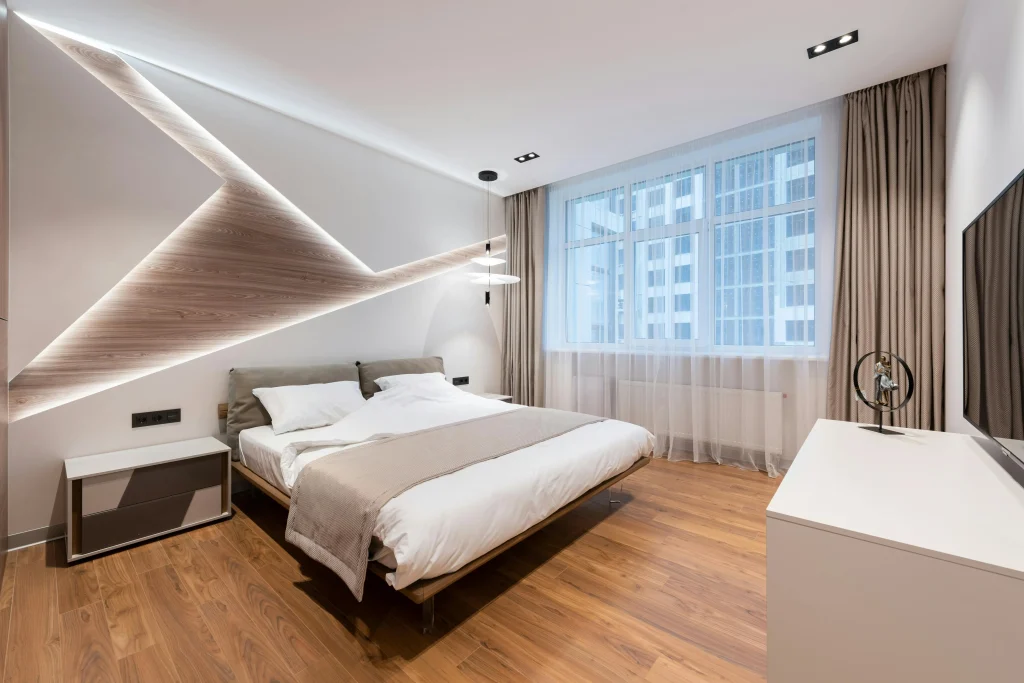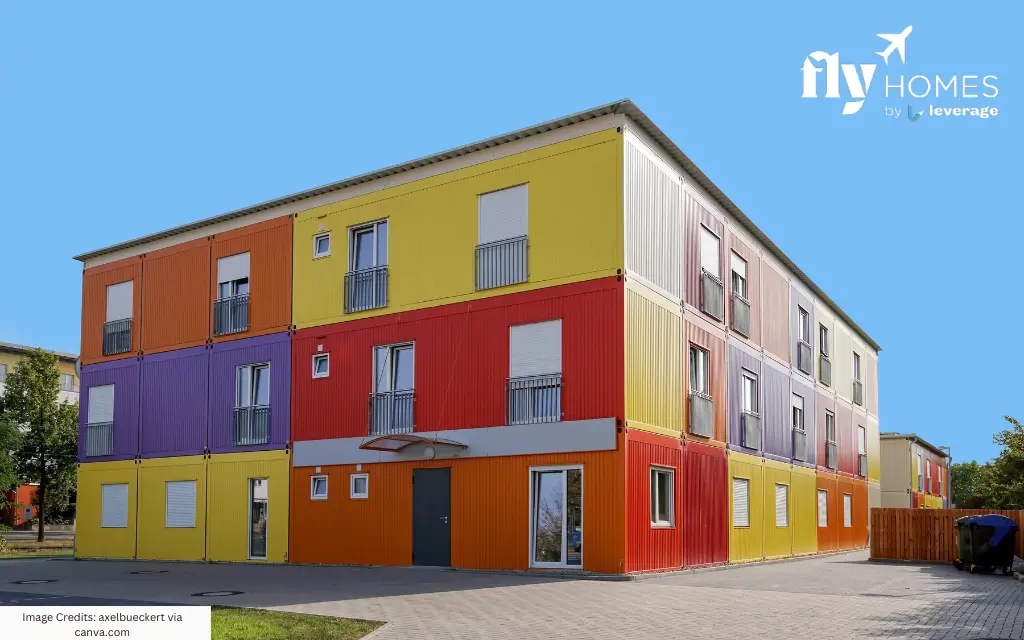Finding the perfect place to live while pursuing your education is a critical decision for every student. While on-campus housing offers convenience, off-campus student accommodation provides a range of benefits that cater to various lifestyles and budgets. This comprehensive guide will help you navigate the world of off-campus living, offering insights into why it’s a popular choice, what types of accommodations are available, and how to make the most of this experience.
Table of contents
- What is Off-campus Student Accommodation?
- Why Choose Off-Campus Student Accommodation?
- Types of Off-Campus Student Accommodation
- How to Find the Right Off-Campus Student Accommodation?
- Key Considerations Before Signing a Lease
- Tips for a Smooth Transition to Off-Campus Living
- Advantages & Challenges of Off-Campus Student Accommodation
- FAQs
What is Off-campus Student Accommodation?

Off-campus student accommodation refers to housing options available to students outside the university’s campus premises. Unlike dormitories or residence halls provided by the institution, these accommodations can include apartments, houses, or purpose-built student housing located in the surrounding community. These options offer students a chance to experience greater independence, flexibility, and the ability to customize their living arrangements to better suit their personal and academic needs.
Why Choose Off-Campus Student Accommodation?
Choosing to live off-campus is a transformative experience that goes beyond just finding a place to stay. It offers unparalleled flexibility, independence, and opportunities for personal growth. Whether it’s about managing your own space or exploring life outside the campus bubble, off-campus living provides students with a chance to tailor their housing to fit their unique needs.
Flexibility in Housing Options
One of the primary advantages of off-campus accommodation is the flexibility it offers. Students can choose from a variety of housing options, including apartments, shared houses, private studios, or purpose-built student accommodations (PBSA). This diversity ensures that every student can find a place that suits their needs, preferences, and budget.
Cost-Effectiveness
Off-campus housing can often be more cost-effective than on-campus dorms, especially when students share expenses like rent, utilities, and groceries with roommates. Additionally, living off-campus allows students to control their spending, whether it’s opting for home-cooked meals or choosing utilities based on their budget.
Independence
Living off-campus fosters independence. Students learn valuable life skills, such as budgeting, meal preparation, and time management. Unlike on-campus housing, which often comes with strict rules and schedules, off-campus living provides the freedom to create a personalized daily routine.
Location Choices
While on-campus housing restricts students to dormitories within the university’s vicinity, off-campus accommodation offers a wider range of location options. Students can choose homes closer to urban amenities, cultural hubs, or quieter residential areas, depending on their preferences.
Types of Off-Campus Student Accommodation

Off-campus student accommodation comes in various forms, each designed to meet diverse needs and lifestyles. From shared spaces to private rentals, students can choose the option that best aligns with their budget and personal preferences.
Shared Apartments or Houses
Shared apartments or houses are popular among students for their affordability and social aspects. Sharing a living space with roommates can significantly reduce costs while fostering a sense of community.
Private Rentals
Private rentals offer more privacy and independence. These accommodations are ideal for students who prefer a quieter environment or want to live alone. While private rentals can be more expensive, they provide a personalized living experience.
Purpose-Built Student Accommodation (PBSA)
PBSA facilities are specifically designed for students, offering fully furnished spaces, study areas, and social amenities such as gyms and communal lounges. These accommodations often come with all-inclusive rent, covering utilities and internet, making them a convenient option.
Homestays
For international students or those seeking cultural immersion, homestays provide the opportunity to live with a host family. This option is ideal for students who value guidance and a home-like atmosphere.
How to Find the Right Off-Campus Student Accommodation?

Finding the right off-campus student accommodation is a crucial step in ensuring a comfortable and productive college experience. With various options available, from shared apartments to private rentals, it’s important to consider factors such as location, budget, and amenities. This guide will walk you through essential tips and strategies to help you secure the perfect living space that meets your needs and enhances your academic journey.
Online Platforms
Numerous websites, such as Zillow, Craigslist, and university housing boards, provide listings for off-campus rentals. These platforms allow students to filter options based on location, budget, and amenities.
Social Media and Student Groups
Social media platforms and student groups are valuable resources for finding accommodations. Students can join university-specific groups to connect with others who are renting out spaces or looking for roommates.
Local Realtors
Realtors with experience in the local market can provide professional assistance in finding suitable off-campus housing. Their expertise ensures students find accommodations that meet their needs.
Campus Resources
Many universities offer off-campus housing resources, including databases of available rentals and workshops on finding housing. These resources can simplify the search process.
Also Read:
- How to Find Cheap Student Accommodation in Australia?
- 7 Cheapest Cities to Live in Ireland: Updated List
Key Considerations Before Signing a Lease

Signing a lease is a significant commitment, and it’s essential to be well-informed before making a decision. From understanding lease terms to assessing the condition of the property, careful consideration can save you from potential hassles later. This guide highlights the key factors you should evaluate to ensure a smooth and secure rental experience.
Budgeting
Creating a realistic budget is essential for managing living expenses effectively. In addition to rent, consider all associated costs, such as utilities (electricity, water, internet), transportation fees, groceries, and any extra expenses like insurance or leisure activities. By taking all these factors into account, students can determine if their chosen accommodation is financially feasible. A well-planned budget helps avoid unexpected financial strain and ensures students can comfortably cover their living costs while focusing on their studies.
Proximity to Campus
Living close to campus offers the convenience of saving valuable time and reducing transportation expenses. Accommodations within walking distance mean you can easily attend classes, participate in extracurricular activities, and access campus facilities without worrying about long commutes. If walking distance isn’t feasible, look for properties with reliable public transportation options nearby. This ensures quick and affordable travel, allowing you to focus more on your studies and less on the hassle of daily travel.
Amenities and Utilities
When considering off-campus housing, it’s essential to evaluate the amenities included in the rental agreement. Check whether crucial utilities like high-speed internet, laundry facilities, and parking spaces are provided, as these can greatly impact your daily convenience. For example, access to on-site laundry or parking can save you time and money, while reliable internet is vital for studying and staying connected. Make sure that the amenities offered align with your lifestyle and needs to avoid any unexpected challenges once you’ve moved in.
Safety
Before committing to off-campus accommodation, it’s important to research the safety of the neighborhood. Look for features such as secure locks on doors and windows, well-lit streets, and a generally safe environment for walking at night. Additionally, ensure the property is close to emergency services like hospitals or police stations, so you can feel secure in case of an emergency. A safe neighbourhood will contribute to your peace of mind and overall comfort during your time at school.
Lease Terms
Before signing a lease, it’s crucial to thoroughly review all the terms and conditions to avoid misunderstandings later. Pay close attention to the deposit policies, including how much is required and the conditions for its return. Understand the lease duration, whether it’s a fixed term or month-to-month, and be clear about maintenance responsibilities—who handles repairs and upkeep. Also, ensure you’re aware of any penalties for breaking the lease early, as this can significantly impact your finances if your plans change. A careful review of the lease ensures you know your rights and obligations.
Tips for a Smooth Transition to Off-Campus Living

Transitioning to off-campus living can be a significant change, but with the right approach, it can also be a seamless and rewarding experience. Preparing in advance, staying organized, and adapting to new responsibilities are crucial steps to making this shift successful. Whether you’re moving into your first apartment or sharing a house with friends, these tips will help you navigate the process with confidence.
Plan Ahead
Start searching for accommodations early to secure the best options. The earlier you begin, the more choices you’ll have.
Inspect the Property
Before finalizing any agreement, visit the property to ensure it meets your expectations. Check for any damages, functionality of appliances, and overall cleanliness.
Roommate Agreements
If you’re sharing the space with others, set clear expectations regarding chores, bills, and shared spaces. A written agreement can help avoid conflicts.
Stay Organized
Track important deadlines for rent payments, utility bills, and lease renewals. Staying organized ensures a stress-free living experience.
Build a Routine
Establish a daily routine that balances academics, chores, and leisure. This structure will help you stay productive and maintain a healthy lifestyle.
Advantages & Challenges of Off-Campus Student Accommodation

Living off-campus can be both an exciting and daunting experience for students. While it offers unmatched opportunities for independence and growth, it also comes with a unique set of responsibilities. Understanding these advantages and challenges is key to making the most out of this journey.
Advantages
- Personal Growth: Off-campus living teaches essential life skills, such as budgeting and time management.
- Variety of Housing Options: Students can choose accommodations tailored to their preferences and budget.
- Increased Privacy: Living off-campus offers more control over personal space and daily routines.
Challenges
- Managing Responsibilities: Students must handle rent payments, utility bills, and other tasks independently.
- Higher Upfront Costs: Security deposits and furniture purchases can be significant initial expenses.
- Distance from Campus: Depending on the location, commuting can be time-consuming or costly.
Also Read:
- Cheap Student Accommodation in Dublin for Students Abroad
- Cheapest Student Accommodation in Sydney [2025]
Off-campus student accommodation is a rewarding experience that combines independence with opportunities for personal and academic growth. By carefully considering factors like budget, location, and housing type, students can find accommodations that align with their needs and preferences. Although the transition to off-campus living comes with challenges, it’s an invaluable step toward adulthood and self-reliance. For a stress-free stay during your study abroad adventure, choose Fly Homes. Call 1800572118 to reserve your ideal accommodation abroad with ease.
FAQs
Off-campus student accommodation refers to housing options located outside the university’s campus, such as apartments, houses, or purpose-built student housing.
You can use online platforms, social media, local realtors, and university housing resources to find off-campus options.
Off-campus housing can be more affordable, especially if you share expenses with roommates. However, costs vary depending on location and housing type.
Benefits include greater independence, flexibility in housing choices, and opportunities for personal growth and financial management.
Key considerations include budgeting, proximity to campus, safety, lease terms, and included amenities or utilities.
Start searching at least 2-3 months before your planned move to secure the best options.
Yes, international students can live off-campus. Options like homestays can also provide cultural immersion and additional support.
Create a budget, track expenses, share costs with roommates, and choose cost-effective utilities and services.
Ensure you research the neighborhood, check security features, and familiarize yourself with local emergency contacts to stay safe.
Challenges include managing responsibilities like rent and utilities, dealing with higher upfront costs, and commuting to campus.
Follow Us on Social Media




























